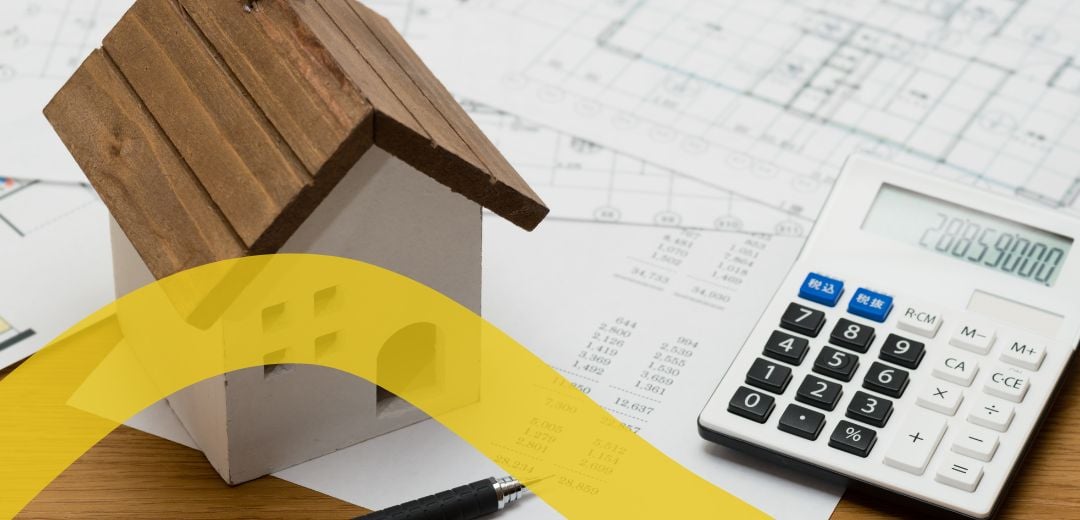From a new house to a renovation to a commercial building, any construction project counts on exact building estimating services to be crucial. These services define the general success of the project and its profitability mostly. Here are the building estimating services, their costs, and the most essential items you should give priority before beginning your project.
Building estimating services project the expenses of a building project. This covers supplies, rent, labor, and whatever else might arise. Usually, these companies aim to develop a financial strategy guiding the entire project.
Types of Building Estimating Services
Usually, building estimating services result in three primary forms:
- Preliminary Estimates
These are approximations of the project’s expenses before we had sufficient data. Early project specifications and past performance enable you to have a general grasp of the project’s financial situation.
- Detailed Estimates
Comprehensive estimates thoroughly summarize all the expenses once the project designs and specs are decided upon. These approximations reveal the project’s actual size and required scope.
- Bid Estimates
These are ready, especially for competitive bidding processes, allowing contractors to deliver accurate and competitive bids. The bid guarantees fair competition using all project aspects.
Key players involved in building estimating services include:
- Estimators who provide the cost estimates.
- Quantity surveyors control and manage building expenses.
- Contractors and project managers who operate the project properly using these estimations.
Why Exactly Do Accurate Building Estimating Services Matter?
Accurate building estimating services are pretty essential for several distinct reasons:
- Budget Management
Accurate projections provide the project’s complete financial picture, helping avoid cost overruns. It allows stakeholders to spot future budget problems early and implement required adjustments to stay within budget. Moreover, a reasonable estimate guarantees the best use of resources and facilitates the distribution of expenses to ensure efficiency.
- Project Coordination And Scheduling
Knowing the financial consequences of different project components helps create realistic project timelines. Accurate estimations ensure that every project element is funded and scheduled appropriately, improving time management and resource allocation.
- Lowering Risk
Early detection of anticipated cost overruns helps to enable proactive steps, including discovering cost-cutting techniques or revising the project scope. Moreover, by considering possible project disruptions and likely problems, precise forecasts help to avoid unexpected expenses.
The Methodology for Building Estimating Services
The building estimating services comprise numerous required phases and is very extensive:
- Initial Consultation and Requirements Gathering
The process starts with knowledge about the project’s scope—that is, regarding plans, requirements, and goals. Clearly expressed goals and constraints will help ensure the estimate supports project objectives. This phase gives an accurate and all-encompassing projection framework.
- Quantity Takeoff
This level governs the measuring and computation of the quantities of required materials for the project. PlanSwift, Bluebeam Revu, and RSMeans are among the professional tools estimators employ to increase accuracy and efficiency in cost estimates and explain what quantity takeoff is in construction.
- Estimated Cost
Once quantities have been decided, estimators determine overheads, labor, and material costs. It includes forecasting material prices based on current market rates, paying overhead and contingency charges to cover unanticipated expenditures, and figuring labor costs depending on required hours and pay rates.
- Review and Finish
Following the development of the first estimate, one should check and confirm its accuracy. It covers assumptions, expenses, and quantities. Any changes in the project scope or newly discovered fresh data over the planning period could call for adjustments and revisions.
Common Challenges in Building Estimating Services
Among the several factors that might reduce the accuracy of building estimating services are:
- Incomplete or Inaccurate Plans
If the designs are excellent and correct, estimations could be accurate. Close cooperation with builders and engineers guarantees that the entire project is covered and helps one identify needs precisely. Design changes could significantly affect prices, so it is advisable to be ready to change projections as required.
- Changes in the Market
Forecasts may need to be corrected depending on labor and material expenses. Maintaining market trends and adjusting your forecasts depending on pricing changes is crucial. When computing expenses, you must also consider region, demand, and how the several labor rates influence.
- Technology and Tools Limitations
Program estimation could contain flaws or limitations that hurt accuracy. Since one needs dependable and updated software, one should utilize it. Another challenging task is tying estimating tools to other project management systems. It implies compatibility and integration must be practical if operations go as scheduled.
Choosing the Right Building Estimating Service Providers
Choosing the building estimating services requires a thorough analysis of several components.
- Experience and Abilities
Search for vendors with the required credentials from organizations such as the Royal Institution of Chartered Surveyors (RICS) or the American Society of Professional Estimators (ASPE). These credentials reveal pretty high degrees of knowledge and experience. Examining the provider’s portfolio of past work will also enable you to determine their expertise and suitability for your project.
- Service Offerings
Make sure the provider provides you with the correct type of estimations—first estimates, thorough estimations, or bids. Many businesses additionally provide additional services, including risk analysis and budget control, to help benefit the estimate process.
- Contract Clauses and Costs
Determine whether the service charges a set cost or depends on the project size and degree of complexity. See whether the agreement’s provisions allow changes to the project’s objectives or scope of activities.
Best Practices for Effective Building Estimating
These techniques will allow you to maximize the value of developing estimation services:
- Complete Project Records Comprising
The estimate is based on the latest information, provided the project documentation is accurate and complete. Open lines of contact help everyone promptly handle any updates or adjustments.
- Review and Update Frequently
Frequent performance comparisons of the project with the estimates help to find deviations and decide what needs to be corrected. The financial projections will be accurate as long as numbers are changed to show cost or scope variations.
- Leveraging Technology
Using contemporary estimation methods will help you to be more accurate and accomplish more. Look for technology that can execute computations automatically and link to other project management systems to ease challenges and improve general project management.
Legal and Ethical Considerations in Building Estimating Services
Legal and moral dilemmas in cost projections for building projects are:
- Legal Specifications
Ensure your area’s prices follow building regulations and guidelines to avoid legal hotbeds. Regarding estimations, such as making sure your projections are accurate and timely, you also have contractual obligations to understand.
- Ethics and Values
Always be honest and transparent to avoid misleading other important people or consumers. Avoid conflicts of interest if you want precision in figures and a natural process.
- Gathering Records and Paperwork
Record all calculations, modifications, and correspondence precisely for legal and financial reasons. Good documentation clarifies the estimating procedure and facilitates problem-solving.
Final Words
The success of building projects primarily depends on building estimating services. A top construction company like Digital Estimating helps one control finances, maintain organization, reduce risks, control frequent obstacles, and use best practices to ensure your project remains on target and within budget.
FAQs
- What is the difference between a preliminary estimate and a detailed estimate?
Early in the project, a conceptual estimate—also called an early estimate—is a ballpark projection derived from insufficient accurate data. A fair estimate of project costs is presented depending on prior performance and the features of the initial project. Conversely, a thorough estimate results after the project ideas and requirements are decided upon. Depending on the particular needs and project constraints, it provides a complete and accurate analysis of all charges.
- How do market fluctuations affect building estimates?
Changes in the cost of labor and supplies and the market’s state could affect building estimations. Estimators must modify their forecasts to match their awareness of the market’s condition. This guarantees that the approximations remain accurate and offer the most current cost statistics.
- What should I look for when choosing a building estimating service provider?
Ensure the company has the qualifications and expertise when seeking a building estimate. Search for appropriate certificates and a body of previous work. Ask whether the vendor provides risk analysis and budget control in addition to the forecast you require—preliminary, comprehensive, and bid. Check their terms and pricing to ensure they also fit your project requirements.
- How often should building estimates be updated?
Building estimates should be adjusted frequently when the scope, design, or project costs vary significantly. Frequent updates ensure that the estimations reflect the project’s current status and stay accurate. Reviewing and adjusting estimations is also essential as the project advances to allow for any variations or new data that could develop.
- What are the legal and ethical considerations in building estimating services?
Legal concerns include knowing contractual commitments for accurate and timely estimating supplies and ensuring estimates follow local building rules and norms. Ethically, being honest and upfront while assessing strategies to prevent deceiving consumers or stakeholders is crucial. Conflicts of interest must also be eliminated to ensure objective assessments and preserve the credibility of the estimation process.


